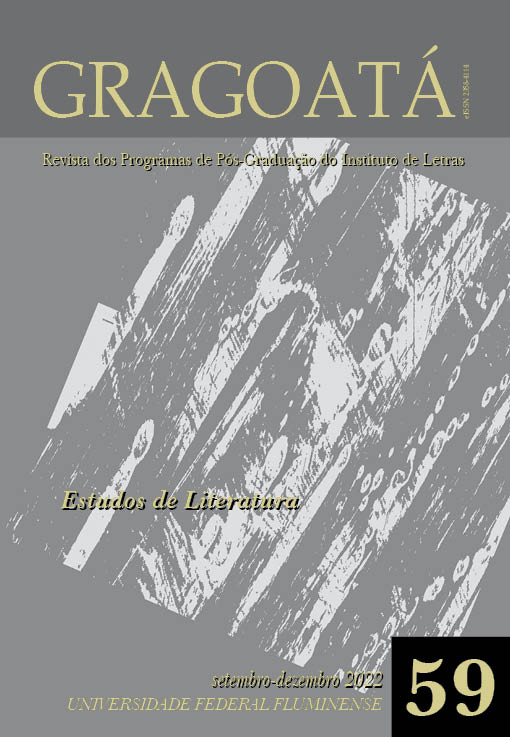Between Fiction and Criticism: Abdellah Taïa Reader of André Gide’s Orientalism
DOI:
https://doi.org/10.22409/gragoata.v27i59.53332Keywords:
Abdellah Taïa, André Gide, Orientalism, Cultural Criticism, EphebophiliaAbstract
This article proposes a reading of the complex intertwining of fiction, history, literary criticism, political philosophy and intersectionality, woven into the metafiction Aquele que é digno de ser amado (2017), by Abdellah Taïa, as a form of appropriation of André Gide’s work. The culturalist reinterpretation, carried out by the novel, of the ephebophile sexual orientalism of this French author is debated. It discusses the political analogy established between her sexual practices with African boys and a narrative plot in which the daily life of the love relationship between two intellectuals, a Moroccan immigrant in Paris and a native parisian man, is imbued with orientalist motivations, which Ahmed, narrator-character, call neocolonialists. It is expected to demonstrate Taïa's critical thinking by exposing the complacency of literary criticism in French regarding the objectification of the bodies and lives of the Arab subjects represented in Gide's work. Therefore, it is about the reception of cultural studies in France, according to BRISSON (2018) and SMOUTS (2010). The methodological assumptions of SAID (1990; 1995) on orientalism are briefly presented, as well as a contextualization, in Gide's work, of his “oriental-sexual tourism”. We then move on to the analysis of the ironic “transcontextualization” (HUTCHEON, 1985) undertaken by Abdellah Taïa's narrative. The concept « não-lugar da literatura» by SOUZA (1999) is also used to understand the value judgments about the literary text in cultural criticism and literary studies. From the critical fortune of Abdellah Taïa and André Gide, it refers to articles by HEYNDELS (2020); SANSON (2013) and KOPP (2019), respectively.
Downloads
Downloads
Published
How to Cite
Issue
Section
License
Copyright (c) 2022 Gragoatá

This work is licensed under a Creative Commons Attribution 4.0 International License.
Authors who publish in Gragoatá agree to the following terms:
The authors retain the rights and give the journal the right to the first publication, simultaneously subject to a Creative Commons license CC-BY-NC 4.0, which allows sharing by third parties with due mention to the author and the first publication by Gragoatá.
Authors may enter into additional and separate contractual arrangements for the non-exclusive distribution of the published version of the work (for example, posting it in an institutional repository or publishing it in a book), with recognition of its initial publication in Gragoatá.

Gragoatá is licensed under a Creative Commons - Attribution-NonCommercial 4.0 International.














